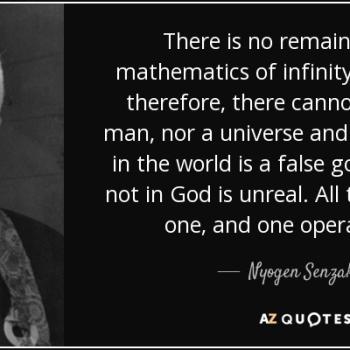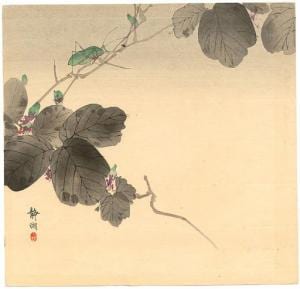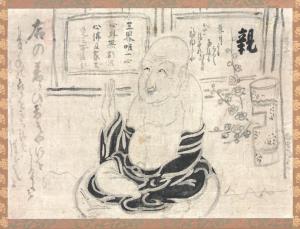Gutei’s Finger
The Gateless Gate, Case 3
Translated by Nyogen Senzaki & Paul Reps
First Published in Zen Flesh, Zen Bones
Together with Nyogen Senzaki’s commentaries,
First published in Eloquent Silence
The Case:
Whenever he was asked a question about Zen, Gutei raised his finger.
A young attendant began to imitate him. When anyone asked the boy
about his master’s teaching, the boy would raise his finger.
Gutei heard about the boy’s mischief He seized him and cut off his
finger. The boy cried and began to run away. Gutei called out to him.
When the boy turned his head, Gutei raised his finger. At that, the boy
was enlightened.
When Gutei was about to pass from this world, he gathered his
monks around him and said, “I attained my one-finger Zen from my
teacher, Tenryu, and throughout my whole life, I have not exhausted
it.” Then he passed away.
BODHISATTVAS: In the time of Gutei, the Chinese government perse-
cuted Buddhism, destroying 40,000 Buddhist temples and cancelling the
ordination status of 260,000 monks and nuns. This took place in 845
C.E.; the tyrannical rule lasted for twenty months. As a monk, Gutei lost his
temple home. He hid himself in a remote mountain, begging for his food
secretly among the villagers. One evening a nun came to his shelter and
walked around him three times with her traveling staff without taking her
hat off. It was very impolite to act that way at a monk’s shelter. She made
it clear that she considered him a stone image, not a living monk. Gutei
commanded her to take of her hat. The nun said, “If you are not a stone
image, say a word of Zen, and then I will properly pay you my respects.”
Gutei had never attained Zen; therefore, he could not say a word. The
nun called him a stupid monk, and went away. Gutei was ashamed of himself
to no small degree. He made up his mind that he would undertake a
journey through which he might attain understanding. Before he could
start out, however, he was visited by an old monk. Gutei expressed his
shame and resolve, frankly, in a man-to-man talk. The old monk then
raised his finger. Seeing this, Gutei was enlightened. The old monk was
Tenryu, a great teacher of that time.
Although the Chinese government’s persecution resulted in the worst
circumstances for the Buddhist establishment in its history in China, it
created the opportunity for good monks and nuns to set out on pilgrimages.
Gutei, too, caught his chance at this time of oppression. He sensed
keenly that the opportunity for realization is rare and noble. This was the
reason why, in our present story, he cut off the boy’s finger.
An imitation of the teaching seems at first rather innocent, but if it is
not nipped in the bud, it will grow into the ugly weed of religious complacency,
or into the troublesome weed of hypocrisy. To open the gate of
realization, one must block off one’s road of conceptualization. Gutei
seized the boy and cut off his finger. The boy cried and began to run away.
It was too sudden for the boy to think of anything; there was only the
pain. At that moment, Gutei called for the boy to stop. The boy turned
his head toward Gutei, and the master raised his finger. There! With his
road of thinking blocked, the boy could be enlightened.
This koan not only teaches you to realize Zen for yourself, but also
shows you how to open the minds of others and let them see the truth as
clearly as daylight. The power of Zen that Gutei received from Tenryu
was not merely the act of raising a finger; it was the means to enlighten
others. Therefore he said on his deathbed, “I attained my one-finger Zen
from my teacher, Tenryu, and throughout my whole life, I have not
exhausted it.”
MUMON’S COMMENT
The enlightenment that Gutei and the boy attained has nothing to do with
the finger. If you cling to the finger, Tenryu will be so disappointed that he
will annihilate (another Chinese expression; we should probably use the
word “disown;’ or “expel”) Gutei, the boy, and you.
MUMON’S VERSE
Gutei cheapens Tenryu’s teaching
Emancipating the boy with a knife.
Compared to the Chinese god who divided a mountain with one hand,
Old Gutei is a poor imitator.
A Chinese myth tells us that the Yellow River at first could not run toward
the east, as there was a great mountain in the way. A god came to help, and
divided the mountain into two parts, so that the water could run through.
If you look carefully at those two mountains, you will find the fingerprints
of this god. Such a story! Zen never asks us to believe in miracles, but we
Zen students perform miracles without knowing it ourselves. Didn’t I
give you a koan in this seclusion: “After you have entered into the house,
then let the house enter into you.” Now, show me how you accomplish
this trick! Those who are still working on this koan: have a cup of tea and
go home. You will sleep soundly tonight.













